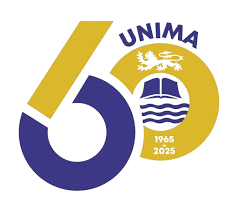CHANCELLOR COLLEGE MAKING STRIDES IN SPECIAL NEEDS EDUCATION
Implementing the principles of inclusive education within higher education can be challenging. Inclusive education was originally developed for younger students, prior to its application within higher education. However, as more students with disabilities successfully complete their secondary school education, the need to move towards inclusive practices within higher education has increased. It is for this reason that on Thursday, 15th March, 2018, Chancellor College’s Faculty of Law organized a one-day staff and students workshop at the faculty’s boardroom. The workshop was specifically organized by the faculty’s disability legal clinic, to appreciate the challenges being faced by special needs students at Chancellor College.
According to a presentation by Henry Chizimba, a fourth year Law student, from primary school through college, persons with disabilities face barriers like lack of accessible facilities and lesson content, insensitive teachers and lecturers, and non-inclusive assessment methodologies. He said these barriers bar persons with disabilities from engaging fully in academic life.
He applauded college management for the strides it is making in making sure that special needs students have access to education as well as participation and engagement in social and academic life at the college.
Taking his turn to speak, the Dean of Students, Dr Jonas Mwatseteza, said that as a college they are doing all they can to make the college have facilities that can accommodate people with special needs to achieve universal education for all. He added that the 21st century has brought in a revolutionary change in the way students study in universities, as technology continues to play a crucial role in helping students achieve more conceptual and practical knowledge of topics taught in classrooms. Students with special needs too are now able to study in a general classroom setting, access relevant technologies and use them for higher cognitive development, helping them integrate with their surroundings.
It is for this reason that Chancellor College has included information and communication technologies such as computers, recording devices and many more, to compliment special needs education on campus. He said the college is developing a disability policy with the aim of ensuring that students with disabilities at the college are not denied access to the college’s facilities and services. Currently the college has 45 special needs students.
FEDOMA executive director, Action Amosi, who was also a guest speaker thanked the college for taking giant steps as one of a few institutions of higher learning in providing access to special needs education. He added that there is a need for institutions to adhere to provisions of the disability law to provide necessary facilities, which in turn should motivate people with disabilities to pursue tertiary education. According to the 2012 Disability Act, all educational institutions must create a learning environment conducive for people with disabilities.
Speaking on the sidelines of the workshop, Chanco Disability Legal Clinic coordinator, Dr Enock Chilemba, expressed satisfaction that the workshop had achieved its intended purpose as it highlighted on issues affecting students with special needs and possible solutions were also found. He then pledged of the legal clinic’s continued support to students and the surrounding community through its activities.




